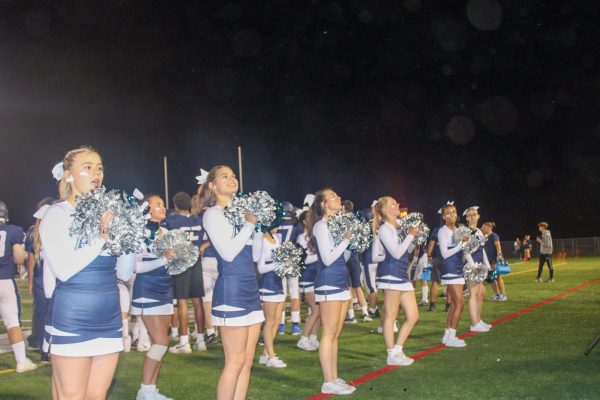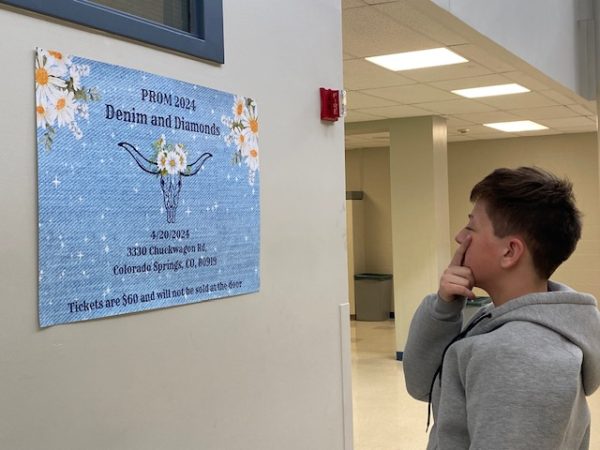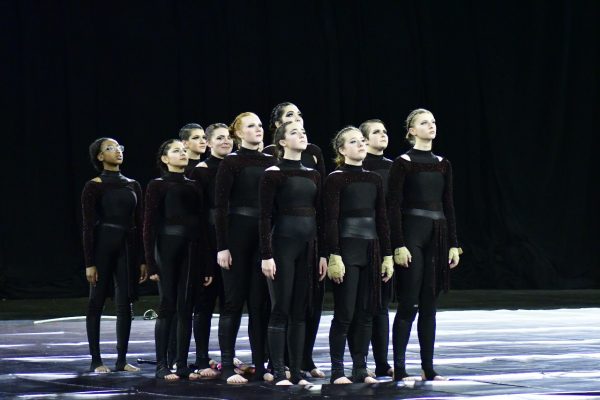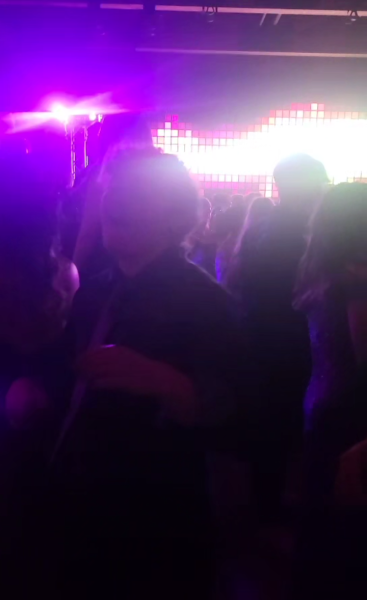“X Marks the Spot”-The Horror Genre and its Cornerstone
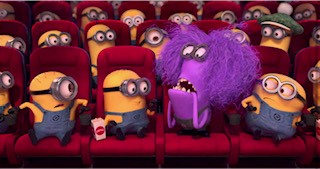
Labeled for reuse by Creative Commons. Illumination Entertainment’s Minions watching a movie at a cinema with red seats.
“One, two, Freddy’s coming for you” a classic line that has haunted adolescents ever since Wes Craven’s A Nightmare on Elm Street franchise launched back in 1984. Horror movies and tv shows have proved to be a widespread phenomenon that has drawn in large crowds of teenage audiences for decades.
Young adults will find themselves after work on a Saturday night going to the cinema with some friends to watch the new Halloween movie or Leigh Whannel’s most recent The Invisible Man.
However, what is it about horror movies that is so appealing to us… and could they be potentially harmful to our health?
“You may get a rush of adrenaline from screening a horror movie, but you’re not actually in any danger when you’re watching, say, The Purge—which is another huge part of the genre’s appeal,” Patti Greco informs on Explore Health’s article “Why do so many people like horror movies? Six reasons we love being scared”.
Aside from the fact, we get a high adrenaline rush, and we get to feel that frightening intensity while watching from a safe distance, Greco notes, “Horror movies give you a glimpse at how life-threatening situations might play out, which can make you feel more prepared for actual danger.”
In other words, horror films can help provide an example of how we would react in certain situations and under certain predicaments, which can eventually prepare us.
“In addition to giving you a playbook of sorts, experts say watching horror movies can help you practice coping strategies,” Greco added.

Robert Kirkman’s “The Walking Dead” show poster featuring the popular character, Rick Grimes riding down an abandoned road to Atlanta.
These scary movies may help audiences cope with certain phobias and anxiety problems, which might eventually lead to potentially healing. Simply stated, it’s as the author of “Millionaire Upgrade: Lessons in Success From Those Who Travel” Richard Parkes Cordock states that, “you must face your fears and limiting beliefs head on to develop your self-belief.”
Aside from this, Greco goes on to identify that audiences also get a chance to explore their dark sides through horror movies, which enables most to feel different from the victim.
So, with this being said, are horror movies detrimental to our health in the long run?
“Horror movies contain psychological tricks that create illusions of suspense and danger through the manipulation of images, sound, and story,” Healthline detailed in “Are horror movies bad for your mental health?”
“Although your brain is aware that the threats are not real, your body simultaneously registers them as if they are,” Healthline mentioned.
These types of films can easily coerce your mind and body into developing unique chemical responses in your brain. Chemical reactions can stimulate feelings that may trigger your flight or fight response.
“Horror films are designed to elicit certain emotions such as tension, fear, stress, and shock. These can cause the release of the hormones in the body such as norepinephrine, cortisol, and adrenaline from the autonomic nervous system,” Healthline elaborated.
Healthline continues by stating, “although adrenaline contributes to the overall experience of the movie, the elevated states can make it harder to sleep.”
After binge-watching James Wan and Leigh Whannel’s entire Saw franchise last week, I found myself suddenly having insomnia and difficulty sleeping for no apparent reason. I later discovered that this is due to one of many reasons.
“Those that suffer from anxiety sensitivity are more likely to experience a negative impact from watching horror films. The tendency to fear intrusive thoughts and images may be triggered and increase levels of anxiety or panic,” Healthline informed.
Furthermore, “binge-watching horror movies also increases the regularity of adrenaline in the body, worsening issues with sleep,” Healthline noted.
Now I know why I could not sleep.
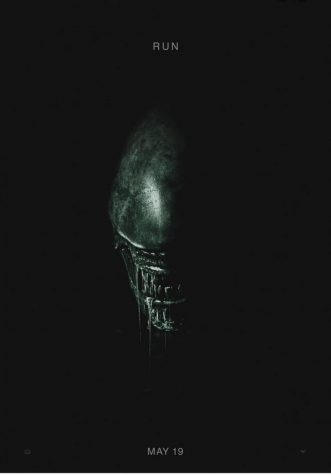
Ridley Scott’s 2017 “Alien Covenant” movie poster.
“Horror movies [are] a genre that I don’t really watch because I don’t really find them interesting at all,” Air Academy junior Jonah McCown commented.
Despite the large audience behind horror movies, not everyone enjoys them, and it may not be because they fear the genre. People such as McCown may get no adrenaline rush from horror films as other people often experience. After all, our bodies and minds are all different and unique in their own way.
“The last horror movie I watched and liked was A Quiet Place,” McCown noted.
John Krasinski’s A Quiet Place reached $340,939,361 worldwide at the Box Office when it was released in theaters back in 2018.
“I want to play a game” from James Wan’s Saw and “you’re gonna need a bigger boat” from Peter Benchley’s Jaws have been longtime iconic lines in the industry of horror movies.
Perhaps you recall, “it’s alive! It’s alive” from 1931’s Frankenstein. Perhaps it’s “do you like scary movies?” from Wes Craven’s original Scream that you vividly remember. And of course, “here’s Johnny!” delivered excitingly by Jack Nicholson in Stephen King’s The Shining.
All these popular lines have stayed with audiences over the decades. Whether horror movies are harmful or not for our mental health, there is no doubt that they are an iconic aspect of our society and continue to entertain us to this day.

How’s it hanging guys? My name is Angel B. Jimenez and it's my first year here at the Jetstream Journal. I’m super excited to explore the corridors...





